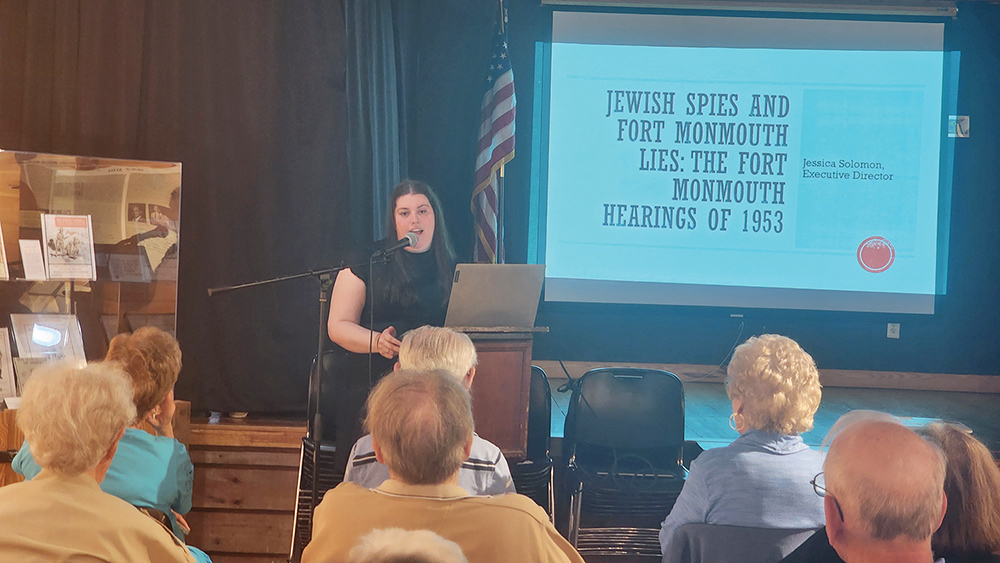
Whether you learned about the 1973 Yom Kippur War in history class or are old enough to remember the events as they were happening, Israel’s stunning victory in a defensive war waged on multiple fronts is particularly noteworthy.
This Yom Kippur marks the 50th anniversary of the war, and the incredible story of what happened behind the scenes makes the new movie “Golda” a must-see. Originally from Israel, director Guy Nattiv brings an authenticity to the production through photographic imagery that weaves archival war footage with recreated scenes.
Most impressive is the treatment given to the title character. Nations headed by women are rarities, and even more atypical when Golda Meir became Israel’s prime minister in 1969. As the lone female, and only person without battlefield experience, Meir relied on information from her experienced advisers and cabinet and was assured that war was not imminent—despite reports of Syrian troops gathering at the Israeli border. Following an investigation in 1974, a national board of inquiry, the Agranat Commission, cleared Meir of any direct responsibility in Israel’s apparent lack of preparedness for the attack.
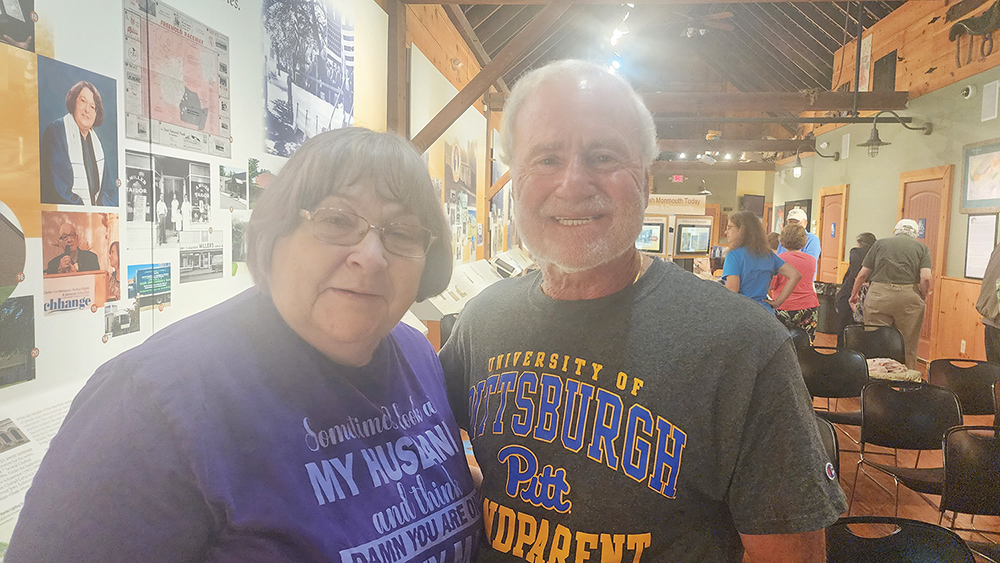
Meir’s leadership talent and skills in negotiation were critical in enlisting assistance from the United States during the war and ultimately meeting with Egypt to end the war. What makes Meir’s accomplishments and appearance of strength even more remarkable at this time was that she was also undergoing treatment for lymphoma. While secretly suffering the aftereffects of radiation and chemotherapy, she was also strategizing a major war effort and suffering with the nation at the death of each soldier.
Flashbacks of Israel’s founding, interspersed with post-war Agranat Commission hearings and actual footage of the start of the Yom Kippur War accompanied by music reminiscent of the Yom Kippur liturgy precede the meeting of Meir with her advisers. Moshe Dayan, a war hero from 1967’s Six Day War, was unconvinced that war was imminent. Other advisers believed that Syrian troop activity was a prelude to military action. Meir made her decisions based on reports that were later found to be the result of malfunctioning surveillance equipment that would have provided 72 hours of advance notice of a major attack, and mobilized far fewer troops than needed. While many second-guessed the decision, saying that many lives could have been saved with the additional 24-hour warning, Meir based her decision on the information presented.
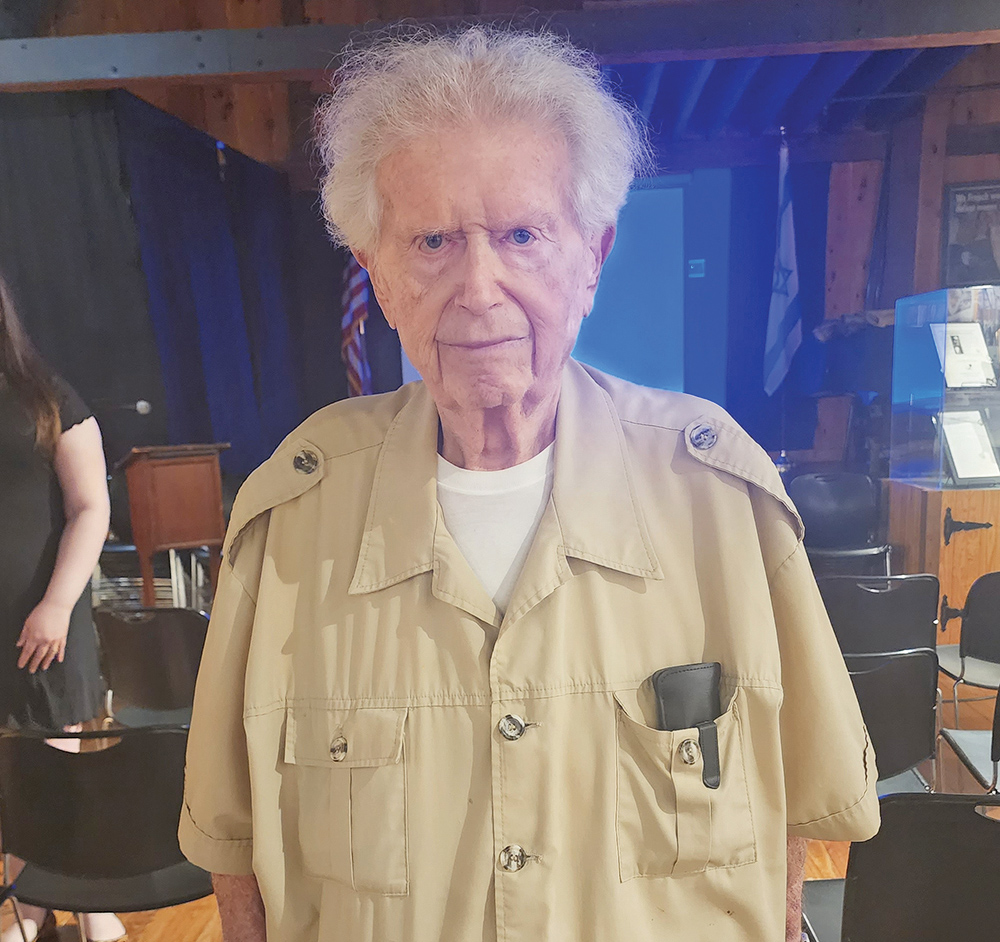
While “Golda” could have been a film about battles and war with action shots, explosions and tanks, it is a taut film focusing on decision making, personal responsibility and the role of a woman who cared deeply about her country and all its inhabitants. Meir called herself “a politician, not a soldier,” yet she was able to gather the demoralized senior military establishment and get them to take action despite the many casualties, equipment losses and defeats at the beginning of the war. It is a character study, with the inherent tension of the events and personal stories of the characters. Meir essentially held to a tough line in dealings with other nations while waiting for the other side to cave, while internalizing her concerns.
Nattiv had one name on the list of actresses he wanted to play Golda Meir: Academy Award winner Helen Mirren. The idea, he said, initially came from Meir’s grandson Gideon Meir. It was a controversial choice to select a non-Jewish actress to portray Meir, and Mirren acknowledged that she confirmed this with Nattiv prior to accepting the role. Interestingly, recent genealogical studies have linked Mirren’s Russian roots to Golda Meir through marriage and to former Israeli presidents Chaim and Ezer Weizman.
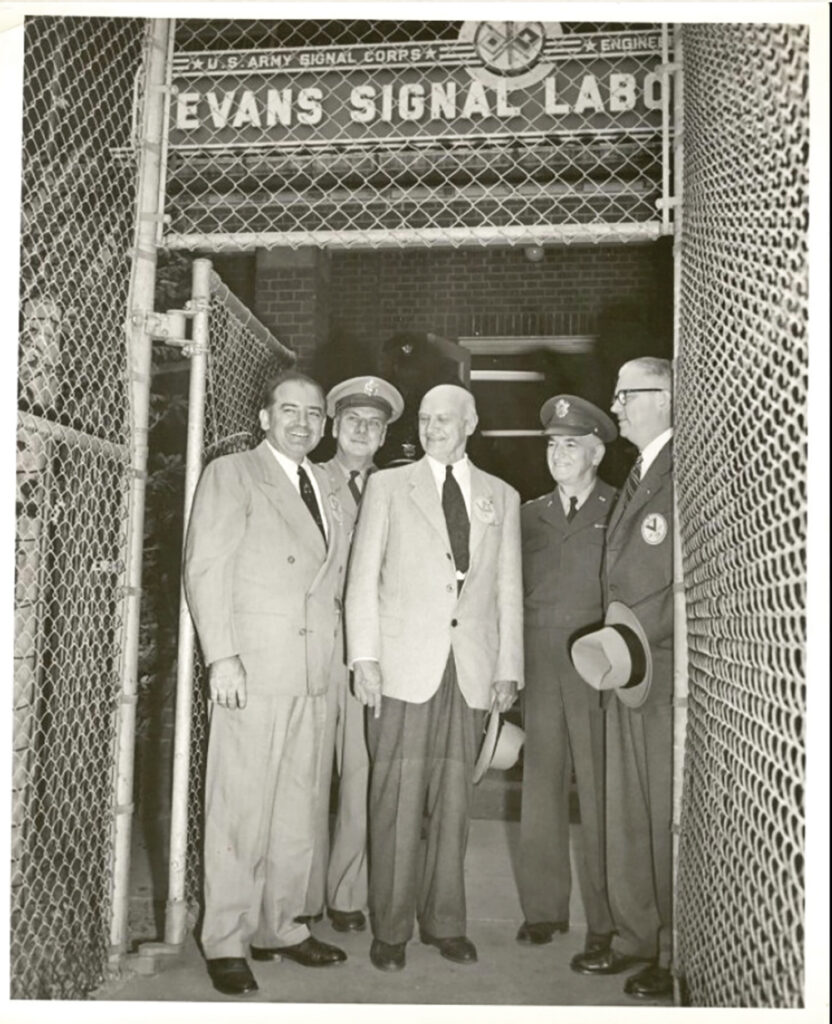
Mirren’s portrayal of Golda Meir is remarkable, and her transformation to the prime minister is an uncanny resemblance of looks and mannerisms. For her initial research, Mirren turned to Meir’s autobiography, “My Life.” “She is such a mighty character with an incredible history,” the actress said. “To have come from where she came from and become the prime minister of Israel, she had to have been extraordinarily committed, single-minded, hardworking and courageous. But at the same time, she was an unpretentious, grandmotherly sort of person. She was always offering homemade cakes or making coffee for people.”
Liev Schreiber, most recently seen as Otto Frank in “A Small Light” on Disney+, portrays a memorable Henry Kissinger who reminds Meir that he is a “statesman and American first, and a Jew last.” Meir responded, “Henry, you forget that in Israel, we read right to left” and ultimately received the help and equipment needed from the United States to turn the tide of the war. She also changed the direction of talks with Egypt’s President Anwar Sadat by insisting that he acknowledge negotiating with “the State of Israel” and not “the Zionist Entity,” thereby receiving their tacit acknowledgement of the legitimacy of Israel.
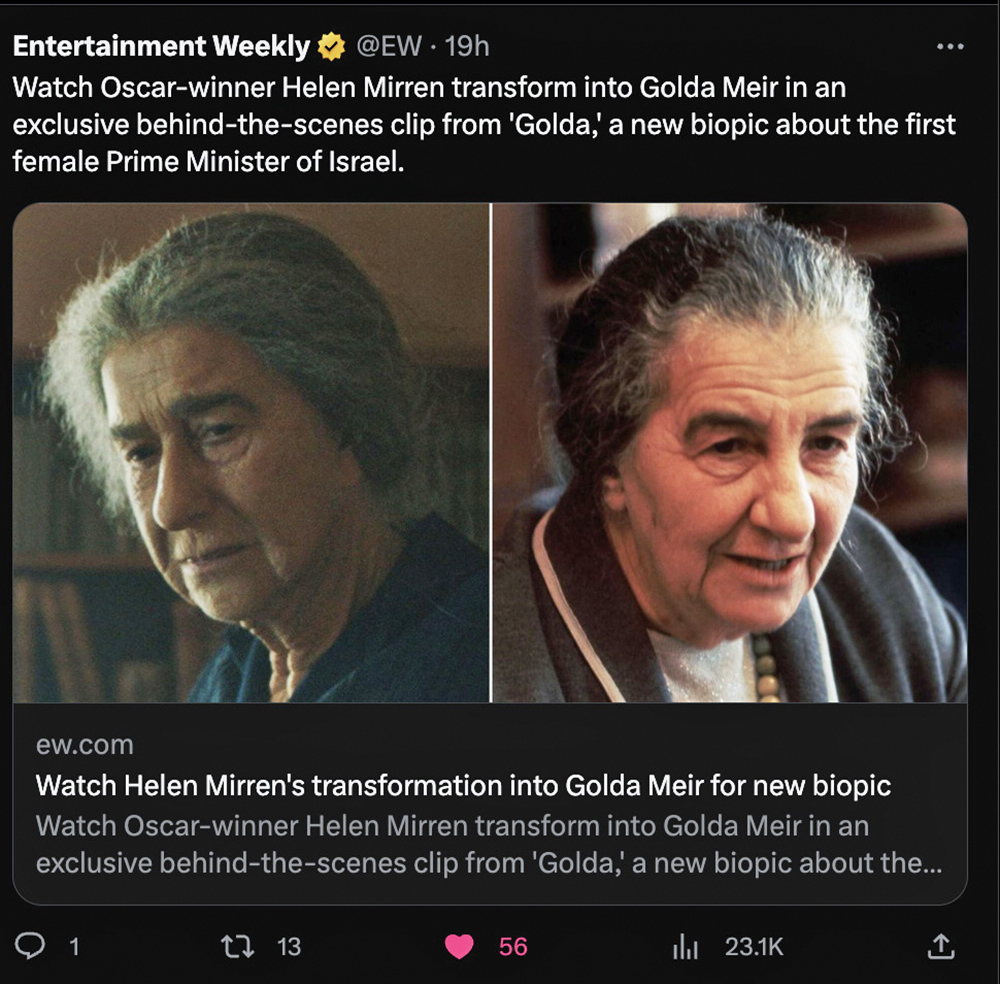
Producer Michael Kuhn’s admiration for Meir began decades ago. He first encountered her in 1968 when they were both volunteering in the kitchen at Kibbutz Beit HaEmek. “But I had never heard the details of what happened in 1973. As I learned more, I was moved by the story of an elderly woman fighting a deadly disease—a reluctant leader who did her duty and set the stage for an enduring peace between Israel and Egypt.” The film’s approach, Kuhn said, is a timely one that reveals as much about who Meir was as a woman as it does about her life as a leader. “She took responsibility for the failures of others and always retained her humility, her vulnerability and her humor.”
Camille Cottin, who portrays Meir’s personal assistant Lou Kadar, was pleased that the film was made from a human perspective that places Meir’s experience front and center. “Golda is a complex figure,” the actress said. “There are many ways of understanding her actions at each crucial moment. The irony of her life is that she dedicated herself completely to her country and then she was practically put on trial for that.”
Whatever your familiarity with the subject material, put this movie on your viewing calendar. The topic is as pertinent on the Yom Kippur War’s 50th anniversary as it was when it happened. “Golda,” written by Nicholas Martin, hadd its world premiere at the 2023 Berlin International Film Festival on February 20, 2023 and is scheduled to be released in the United States on August 25, 2023, by Bleecker Street and ShivHans Pictures.











